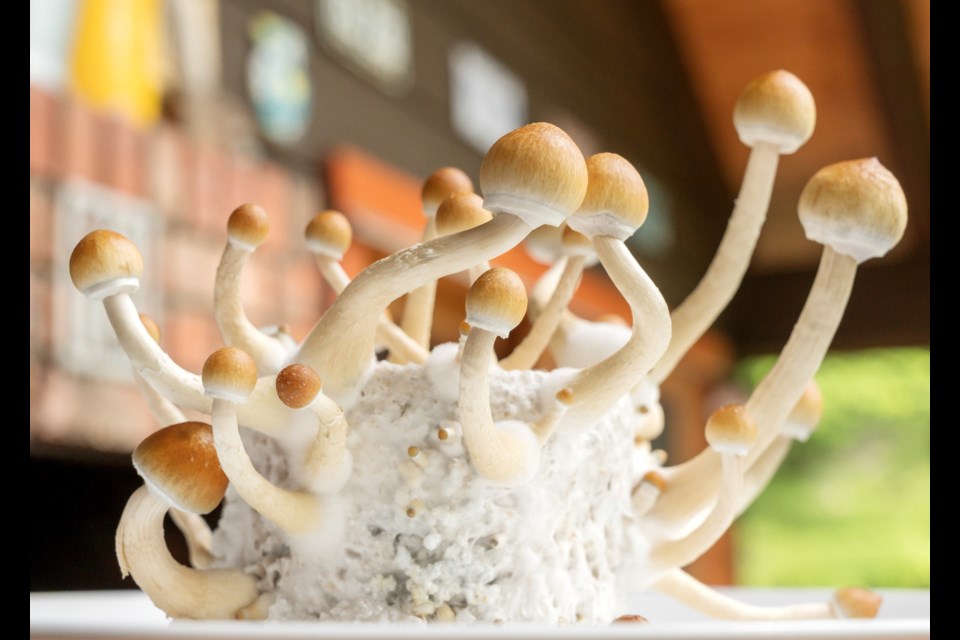For thousands of years Indigenous populations in North and South America and around the world have used and held plant knowledge within their communities.
Shamans or healers used psychoactive plants discriminately in ceremony and ritual. One such example is psilocybin (sil-o-cy-bin), commonly called a magic mushroom.
Vancouver Island University (VIU), which includes Nanaimo and qathet-based tiwšɛmawtxʷ campuses, is trying to bridge two worlds: Indigenous ways of knowing and western medical practices, with an online graduate certificate program in psychedelic-assisted therapy.
In its second year, the program was spearheaded by Dr. Shannon Dames, who is a professor of nursing and health, and chair of the program.
“Psychoactive drugs or plant medicines have been used for thousands of years; they are not new, they have been in practice and ceremonial in aspects,” said Dames, who emphasizes that those interested in the program should have experience in the mental-health field and that the program includes an in-person practicum.
“If the student is in Powell River, ideally they would find a local site for a practicum,” said Dames.
Psychedelic-assisted therapies are now legal in Canada, and the VIU program states that, “there is a growing demand for well-trained health-care teams to deliver psychedelic-assisted therapies.”
Dames said knowledge keepers and elders that work with these medicines, and western practitioners such as nurses, physicians and psychiatrists, all sit at the same table.
“The program is done in small groups so that we're working with cultural diversity in various approaches,” explains Dames. “There is a fine line around how we share knowledge without appropriating, objectifying and coming at that knowledge sharing with a really conceptual, respectful process.”
Currently, Health Canada allows for a special access program, for people to access the psychoactive drugs early, before clinical trials are at the approval process.
“What that looks like for psilocybin is [people] with treatment-resistant-depression, end-of-life distress [can access the treatment],” said Dames.
People with medically documented post-traumatic stress disorder (PTSD) can access ketamine, which is also used as a psychedelic and used for more of a broad indication of challenges.
“We are living in a time with compounding crises and more than half of us by the age of 48 will have a mental health diagnosis,” said Dames. “There is a surge in people with depression, and we are self-medicating, and there is a lack of mental health services available for a large number of the population.”
Dames said that right at the core of addiction is disconnection, and in some ways, psychedelics are connecting medicines.
“Ceremonial use of these substances is very different, it’s kind of a turning toward one’s challenges, as opposed to relieving the suffering; it’s a bit of a flip,” added Dames. “When we look at psychedelic therapy, and not just the substance, but the whole process of how we work with substances, with conscious intention, to feel supported in a secure environment, and where a person feels safe and accepted, it’s the whole process.”
Psilocybin or ketamine is a key to helping a person get unstuck in suffering, but the support, empathy and care given to those in therapy are also important factors in recovery, she added.
Dames founded the nonprofit Roots to Thrive in 2019, Canada’s first and only multidisciplinary, health-care practice to legally offer evidence-informed, group therapy programs designed to address trauma and include the option of psilocybin-assisted and ketamine-assisted group therapy.
Former federal minister of mental health and addictions Carolyn Bennett announced earlier this year a research investment of nearly $3 million through the Canadian Institutes of Health Research to support three clinical trials that will examine psilocybin-assisted psychotherapy as a potential treatment option for alcohol use disorder, treatment-resistant depression and end-of-life psychological distress in advanced-stage cancer patients.
National Addictions Awareness Week is November 19 to 25.
Join the Peak’s email list for the top headlines right in your inbox Monday to Friday.




